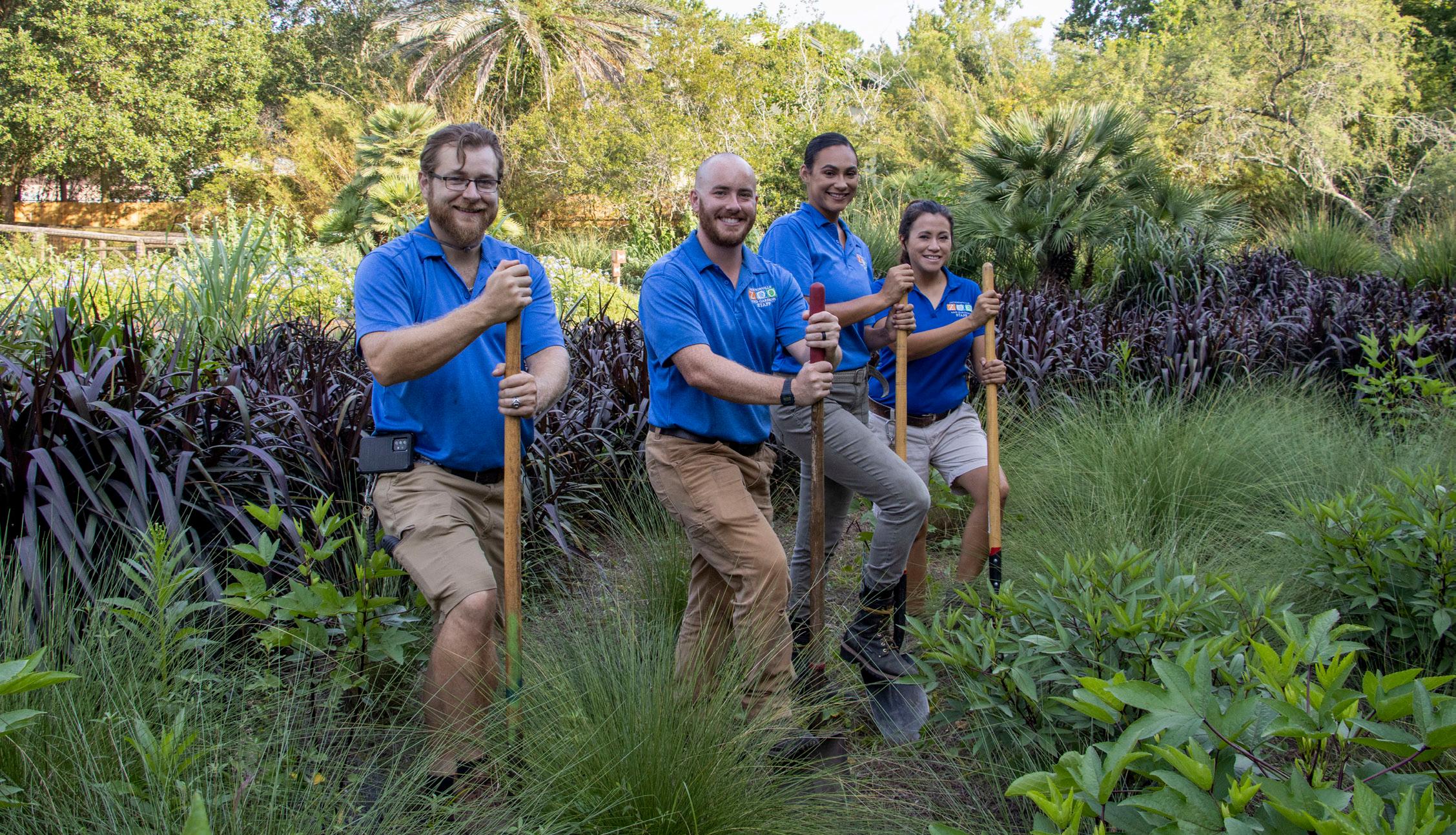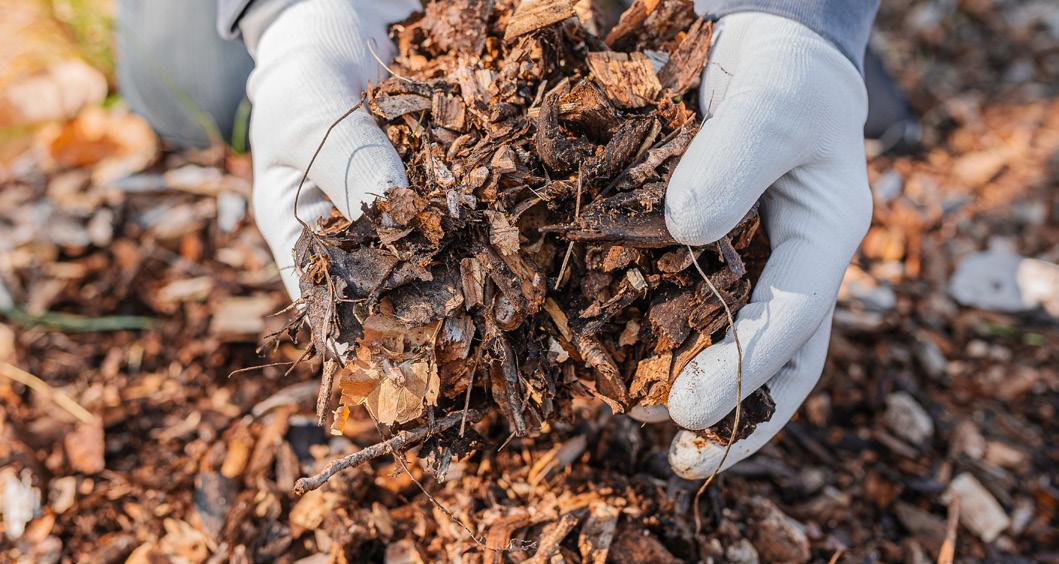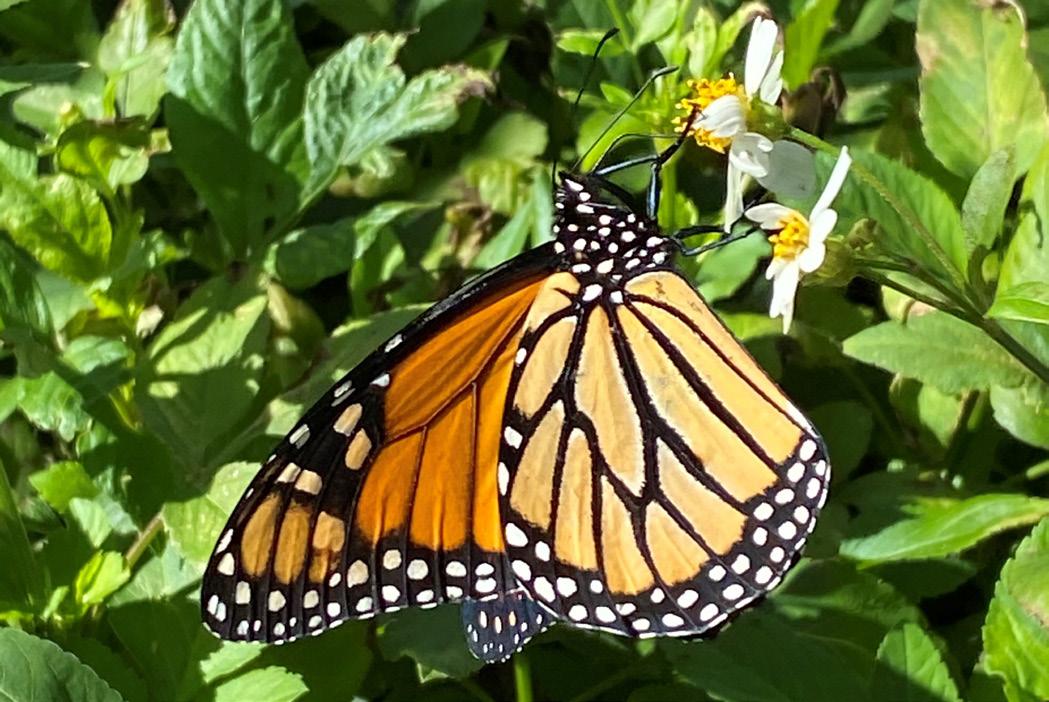
4 minute read
Sustainable Gardening Using Florida Friendly Landscaping Principles
By Devin Deschenes, Horticulture Technician I
Sustainability is a hot topic amongst the environmentally conscious. Eliminating individual use plastics, being mindful of how our goods are sourced and curbing utility use are all effective ways to contribute. Mindful sustainability practice can be applied to gardening as well, using the Florida Friendly Landscaping (FFL) principles developed by the University of Florida. These nine principles, when combined, create a high-yield, low-input green space which provides resources to local wildlife while protecting the surrounding environment.
Advertisement
Right Plant, Right Place
Every plant has unique soil, sun, space and water needs. Being mindful of these needs and selecting plants whose needs match with the environment you are planting in significantly reduces the number of resources needed for your plants to thrive.
Water Efficiently
Mindful watering practices reduce water consumption and the amount of runoff that enters our waterways. Plants should only be watered if their soil is completely dry and irrigation systems should be checked for overspray and fitted with a rain sensor to reduce wasteful watering.
Fertilize Appropriately
Fertilizing is an important part of any garden, but care must be taken. Overfertilizing can damage your plants, as well as the environment, if it enters our waterways. Always follow the directions on the fertilizer you are using, and never fertilize near bodies of water or pathways that lead to water (like drainage ditches.)
A layer of mulch, leaves, or pine straw over your topsoil provides many benefits. It lowers watering needs by retaining moisture and helps insulate plant roots from wintry weather. It also amends the soil with nutrients as it decomposes, reducing the need for fertilizer.

Attract Wildlife
Selecting plants that provide berries, nectar or shelter creates a green space that can be enjoyed by both humans and animals. Utilizing plants native to your area ensures that you are providing an ideal habitat for local fauna. Visiting wildlife can provide plant pollination, soil aeration and pest control among many other benefits.

Manage Yard Pests Responsibly
Aphids, mealybugs, lubbers and many other planteating pests call Florida home. When combating infestations, pesticide may not necessarily be the best option. Many pest issues can be solved by mechanical removal with a simple jet of hose water or a gloved hand, and pest-resistant plant species are available to offer another line of defense. If pesticide is needed, selecting one specifically tailored to the type of pest you have and only spraying affected areas is best. Broad spectrum pesticides can also kill beneficial insects like predators and pollinators.
Recycle Yard Waste
Clippings, dead fall, thatch and fallen leaves all have their uses, even beyond compost. Thatch, leaves and other small debris can be used as natural mulch which provides homes and nesting materials for native wildlife. Fallen limbs can be used as a border which provides shelter to even more forms of wildlife.
Reduce Stormwater Runoff
Rainwater shed from our yards is loaded with fertilizer, topsoil and other debris which has a damaging impact on our waterways' ecology. Planting groundcover, shallow rain gardens, raising perimeter soil and using permeable materials for paths and driveways can all help slow down water runoff. During drier times, these steps have the added effect of optimizing irrigation water.
Protect the Waterfront
Florida is home to a dazzling array of springs, beaches, lakes and rivers. Protecting our natural water sources is vital to both the ecological and economic health of our state. The most crucial step to take is to institute a "NoMow Zone" extending 10 feet around water features. No mowing, fertilizer or pesticides should be applied in this area. Native aquatic plants, of which there are many attractive varieties, should be encouraged and invasively weeded out.
By utilizing these simple principles, you are sure to see an improvement in your garden, local environment and bottom line as well. Multiple communities and HOAs around Florida have reported thousands of dollars in savings on water, pesticides, fertilizer and new plants since switching to FFL landscaping practices.

The horiticulture team can often be seen working in the gardens. Feel free to ask them about sustainable gardening practices. The author of this article, Devon, is above-left.










